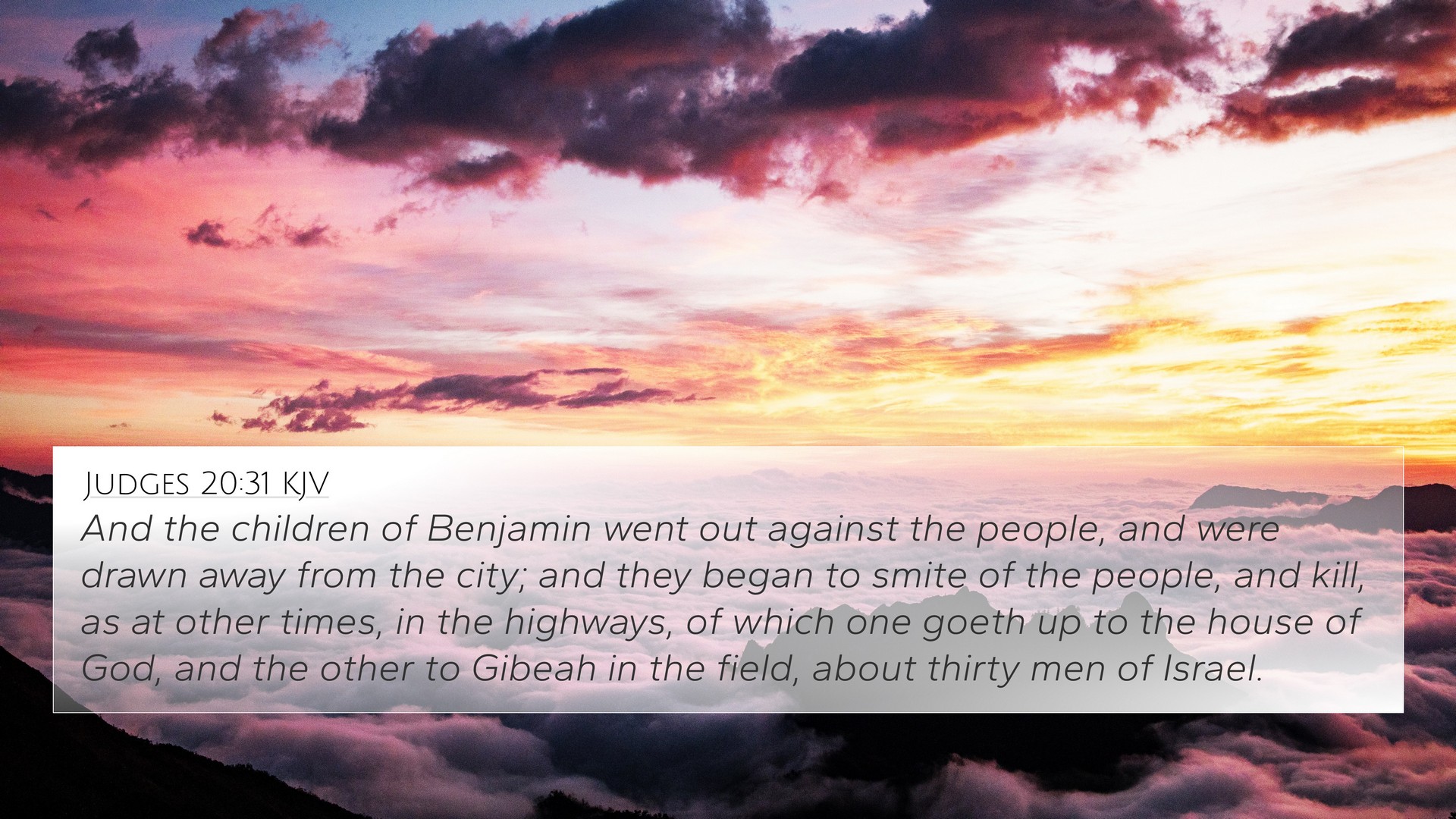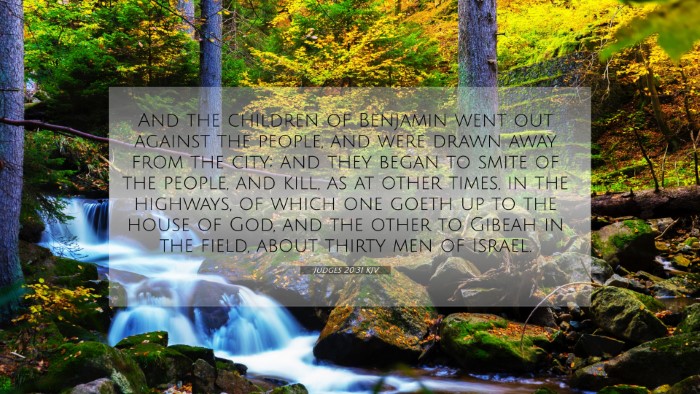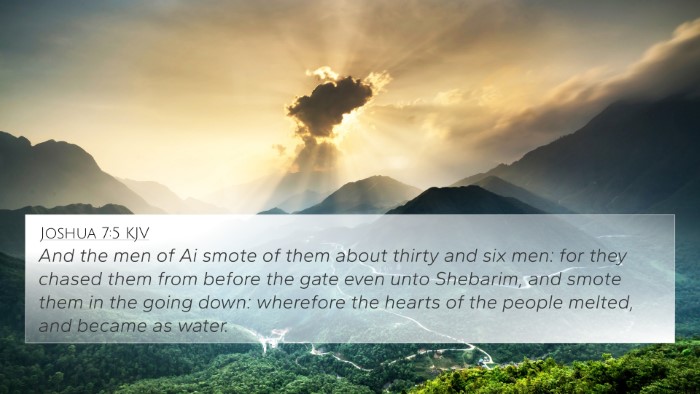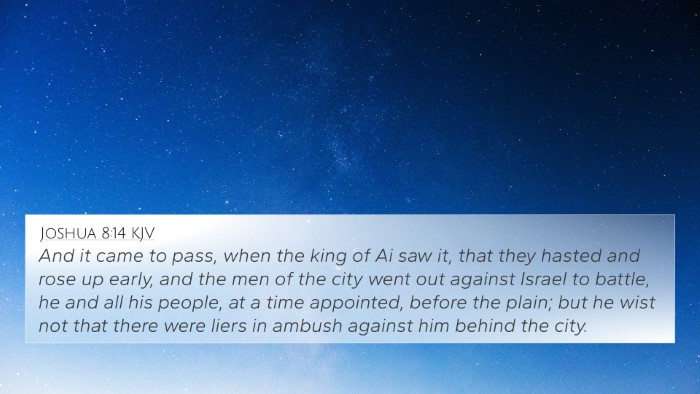Understanding Judges 20:31
This passage presents a key event during the time of the Judges, where the Israelites engage in a civil conflict against the tribe of Benjamin. The intricacies of this battle reveal themes of unity, betrayal, and God's sovereignty in guiding His people through tumultuous times.
Verse Context
Judges 20:31 states: "And the children of Benjamin went out against the people, and were drawn away from the city; and they began to smite of the people, and kill, as at other times, in the highways, of which one goeth up to the house of God, and the other to Gibeah in the field; about thirty men of Israel." This reflects a turning point in an extensive conflict stemming from the grievous sin at Gibeah, where the Levite's concubine was violated and murdered.
Commentary Overview
Insights from well-known commentaries provide depth to the meaning of this verse:
- Matthew Henry: Henry emphasizes the gravity of sin's consequences, illustrating how the conflict among the tribes arose from a failure to uphold justice. He views the slaughter as not only a devastating loss of life but as a sad reflection of Israel's moral decline.
- Albert Barnes: Barnes elaborates on the strategic aspects of this conflict, noting the tactics employed by the Benjamites and the Israelites. He points out that despite their bravery, the Benjamites were ultimately partaking in a battle already foreseen by God as part of a greater plan for justice.
- Adam Clarke: Clarke provides a thorough analysis of the geographic and historical significance, illustrating how the events depicted had broader implications for the boundaries and relationships between the tribes of Israel.
Thematic Connections
Judges 20:31 can be linked thematically with several other scriptures that highlight similar principles of conflict, divine judgment, or communal strife:
- Genesis 49:10: The prophecy regarding Judah's leadership foreshadows the contentious dynamics and eventual tribal conflicts.
- Deuteronomy 13:12-15: This passage emphasizes the importance of judicial processes and the severe consequences of rebellion against God, analogous to the Benjamites' actions.
- 1 Samuel 15:33: This account regarding King Saul’s disobedience parallels the theme of divine retribution seen in Judges 20.
- 2 Corinthians 5:10: The idea that all will appear before the judgment seat resonates with the judgment executed upon the tribes of Israel in these chapters.
- Hebrews 12:14: Pursuing peace emphasizes the consequences when communities fail to uphold justice and righteousness, which echoes in the struggles experienced here.
- Matthew 5:9: The Beatitude stating "Blessed are the peacemakers" serves as a stark contrast to the divisions and conflicts highlighted in Judges.
- Galatians 6:7: The principle of reaping what one sows relates to the dire outcomes of the violence and sins depicted in this chapter.
Practical Applications
For those studying this passage, the importance of cross-referencing Bible verses cannot be overstated. Utilizing resources such as a Bible concordance or a Bible cross-reference guide can help illuminate the connections between similar themes and events throughout scripture. Here are some tools and tips for effective cross-referencing:
- Use of a Comprehensive Bible Cross-Reference System: Look for patterns and connections between verses that mention conflict, sin, and divine judgment.
- Bible Chain References: Follow thematic chains that link the stories of conflict among God's people from the Old Testament to New Testament applications.
- Identifying Connections: Seek out passages in the New Testament that reflect or fulfill Old Testament prophecies and challenges, showing how they relate to themes found in Judges.
Conclusion
In conclusion, Judges 20:31 remains a powerful passage that reflects the complexities of human relationships and God’s overarching plan amidst turmoil. Its relationship with other biblical texts enriches our understanding of sin, justice, and divine sovereignty, inviting deeper exploration and reflection.
Engaging with cross-referenced themes offers a more profound grasp of the interconnectedness of scripture, thereby enhancing our study of the Bible and its continuing relevance today.






